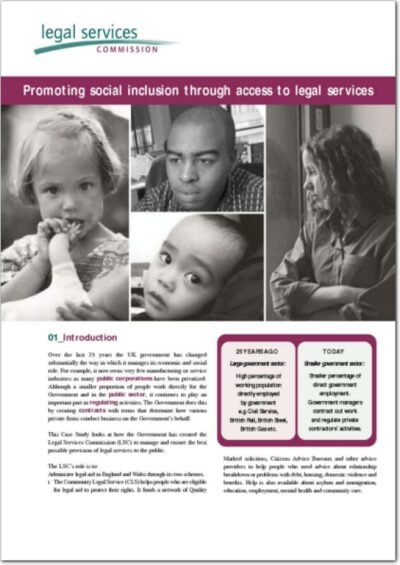Women’s economic empowerment refers to the process by which women gain the ability to make strategic choices and decisions regarding their economic resources and opportunities. This encompasses a broad spectrum of activities, including access to education, employment, financial services, and property rights. At its core, economic empowerment is about enabling women to participate fully in the economy, thereby enhancing their autonomy and agency.
It is not merely about increasing women’s income but also about transforming the structures that limit their economic potential. The concept of women’s economic empowerment is deeply intertwined with gender equality. When women are empowered economically, they can contribute to their families and communities in meaningful ways, leading to improved living standards and overall societal progress.
This empowerment is often measured through various indicators such as labour force participation rates, wage equality, and access to leadership positions in business and government. Understanding these dynamics is crucial for developing effective policies and initiatives aimed at fostering an environment where women can thrive economically.
Summary
- Women’s economic empowerment refers to the ability of women to participate in, contribute to, and benefit from economic activities on the same terms as men.
- Women’s economic empowerment is important for achieving gender equality, reducing poverty, and promoting sustainable development.
- Women face various challenges in economic empowerment, including limited access to education, financial resources, and opportunities for leadership and decision-making.
- Strategies for promoting women’s economic empowerment include providing access to education and training, improving access to financial services, and promoting women’s entrepreneurship.
- Government and policy play a crucial role in promoting women’s economic empowerment through the implementation of laws and policies that promote gender equality and support women’s economic participation.
The Importance of Women’s Economic Empowerment
The significance of women’s economic empowerment extends beyond individual benefits; it has profound implications for entire economies and societies. Economically empowered women are more likely to invest in their families’ health and education, leading to a ripple effect that can uplift entire communities. For instance, studies have shown that when women control household income, they tend to allocate more resources towards children’s education and healthcare compared to their male counterparts.
This investment in human capital is essential for breaking the cycle of poverty and fostering sustainable development. Moreover, women’s economic empowerment contributes to economic growth at a macro level. The McKinsey Global Institute has estimated that closing gender gaps in labour force participation could add trillions of dollars to global GDP.
By harnessing the talents and skills of women, economies can become more resilient and innovative. In sectors such as technology and entrepreneurship, women’s participation can lead to diverse perspectives that drive creativity and problem-solving. Thus, empowering women economically is not just a moral imperative; it is a strategic necessity for achieving robust economic performance.
Challenges Faced by Women in Economic Empowerment

Despite the clear benefits of women’s economic empowerment, numerous challenges persist that hinder progress. One of the most significant barriers is the prevalence of gender-based discrimination in the workplace. Women often face unequal pay for equal work, limited access to promotions, and a lack of representation in leadership roles.
This systemic inequality not only affects women’s earnings but also diminishes their career aspirations and professional growth. Additionally, cultural norms and societal expectations can impose restrictions on women’s economic activities. In many cultures, traditional gender roles dictate that women should prioritise domestic responsibilities over professional ambitions.
This societal pressure can lead to a lack of support for women pursuing careers or starting businesses. Furthermore, access to financial resources remains a critical challenge; women are often less likely than men to secure loans or credit due to biases within financial institutions. These barriers create a cycle of disadvantage that is difficult to break without targeted interventions.
Strategies for Promoting Women’s Economic Empowerment
To effectively promote women’s economic empowerment, a multifaceted approach is necessary. Education plays a pivotal role in this process; ensuring that girls have access to quality education equips them with the skills needed to compete in the job market. Vocational training programmes tailored specifically for women can also help bridge the skills gap in various industries, particularly those that are traditionally male-dominated.
Another vital strategy involves enhancing women’s access to financial services. Microfinance initiatives have proven successful in providing women with the capital needed to start or expand businesses. By offering tailored financial products that consider women’s unique needs and circumstances, these initiatives can empower women economically while fostering entrepreneurship.
Additionally, mentorship programmes that connect aspiring female entrepreneurs with experienced business leaders can provide invaluable guidance and support, helping them navigate the challenges of starting and running a business.
The Role of Government and Policy in Women’s Economic Empowerment
Government policy plays a crucial role in shaping the landscape for women’s economic empowerment. Legislative frameworks that promote gender equality in the workplace are essential for dismantling barriers that hinder women’s participation in the economy. Policies such as paid parental leave, flexible working arrangements, and anti-discrimination laws can create an environment where women feel supported in pursuing their careers while balancing family responsibilities.
Furthermore, governments can implement targeted programmes aimed at increasing women’s access to education and training opportunities. Investing in female entrepreneurship through grants or subsidies can stimulate economic activity while empowering women to take charge of their financial futures. International organisations also play a significant role by advocating for policies that promote gender equality on a global scale, encouraging countries to adopt best practices and share successful strategies.
Successful Examples of Women’s Economic Empowerment Initiatives

Numerous initiatives around the world have successfully promoted women’s economic empowerment, serving as models for future programmes. One notable example is the Grameen Bank in Bangladesh, founded by Muhammad Yunus. This microfinance institution provides small loans to impoverished women without requiring collateral, enabling them to start businesses and improve their livelihoods.
The success of Grameen Bank has inspired similar microfinance initiatives globally, demonstrating how access to financial resources can transform lives. In Rwanda, the government has implemented policies aimed at increasing women’s representation in leadership positions within both public and private sectors. The country boasts one of the highest percentages of female parliamentarians in the world, which has led to progressive legislation promoting gender equality and women’s rights.
This commitment to empowering women has resulted in significant improvements in health, education, and economic outcomes for Rwandan women.
The Impact of Women’s Economic Empowerment on Society
The impact of women’s economic empowerment extends far beyond individual success stories; it has transformative effects on society as a whole. When women are economically empowered, they contribute to social stability and cohesion. Research indicates that societies with higher levels of gender equality tend to experience lower rates of violence and conflict.
Empowered women are more likely to advocate for peace and social justice, fostering environments where communities can thrive. Moreover, women’s economic empowerment leads to improved health outcomes for families and communities. Women who have control over their finances are better positioned to make informed decisions regarding healthcare and nutrition.
This not only benefits their immediate families but also contributes to broader public health improvements. As women invest in their children’s education and wellbeing, they help create a more educated workforce for future generations, ultimately driving economic growth and development.
The Future of Women’s Economic Empowerment
Looking ahead, the future of women’s economic empowerment hinges on continued advocacy and action at multiple levels—individual, community, national, and global. As awareness of gender disparities grows, there is an increasing demand for policies that promote equality and inclusivity in all spheres of life. The rise of technology presents both challenges and opportunities; while automation may threaten certain jobs traditionally held by women, it also opens new avenues for innovation and entrepreneurship.
Furthermore, the ongoing global dialogue surrounding climate change highlights the importance of including women in decision-making processes related to sustainability and environmental stewardship. Women often bear the brunt of climate-related challenges yet possess unique insights into sustainable practices within their communities. By empowering women economically, societies can harness their potential as agents of change in addressing pressing global issues.
In conclusion, while significant strides have been made towards achieving women’s economic empowerment, much work remains to be done. By addressing systemic barriers, implementing supportive policies, and fostering an inclusive environment for women’s participation in the economy, we can pave the way for a future where all individuals—regardless of gender—can thrive economically and contribute meaningfully to society.
Women’s economic empowerment is crucial for achieving gender equality and sustainable development. One related article that explores the importance of social listening in business strategies can be found here. This article highlights how businesses can use social listening to understand their customers better and make informed decisions. By adopting innovative online business components, such as online casinos, companies can reach a wider audience and increase their revenue streams. Another interesting read discusses important car leasing tips for business startups, which can help entrepreneurs make cost-effective decisions when it comes to their transportation needs.
FAQs
What is Women’s Economic Empowerment?
Women’s economic empowerment refers to the ability of women to participate in, contribute to, and benefit from economic opportunities on an equal basis with men. This includes access to and control over resources, as well as the ability to make decisions and influence economic outcomes.
Why is Women’s Economic Empowerment important?
Women’s economic empowerment is important for achieving gender equality and sustainable development. When women are economically empowered, they can contribute to their families, communities, and economies, leading to poverty reduction and overall societal progress.
What are some barriers to Women’s Economic Empowerment?
Barriers to women’s economic empowerment include discriminatory laws and social norms, limited access to education and training, lack of access to financial services and credit, and unequal opportunities for employment and entrepreneurship.
How can Women’s Economic Empowerment be promoted?
Women’s economic empowerment can be promoted through policies and programmes that address gender-based discrimination, improve access to education and training, provide support for women-owned businesses, and ensure equal opportunities for employment and leadership positions. Additionally, addressing unpaid care work and promoting work-life balance can also contribute to women’s economic empowerment.
 Ben Sherman A3 ePoster Edition 13 "Use of the marketing mix in the fashion industry"
Ben Sherman A3 ePoster Edition 13 "Use of the marketing mix in the fashion industry"  Achieving growth through product development (MP3)
Achieving growth through product development (MP3)  Promoting social inclusion through access to legal services (PDF)
Promoting social inclusion through access to legal services (PDF) 